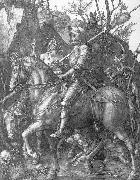China al por mayor de Marco de Oleo |
|||||||||||

|
|||||||||||
|
|
|
||||||||||||||
|
Albrecht Durer
b.May 21, 1471, Imperial Free City of N??rnberg [Germany] d.April 6, 1528, N??rnberg |
||||||||||||||
|
|
||||||||||||||
|
||||||||||||||
|
|
||||||||||||||
| Albrecht Durer
b.May 21, 1471, Imperial Free City of N??rnberg [Germany] d.April 6, 1528, N??rnberg 1513 Engraving, 245 x 188 mm Staatliche Kunsthalle, Karlsruhe During 1513 and 1514 D?rer created the greatest of his copperplate engravings: the Knight, St Jerome in His Study, and Melencolia I - all of approximately the same size. The extensive, complex, and often contradictory literature concerning these three engravings deals largely with their enigmatic, allusive, iconographic details. Although repeatedly contested, it probably must be accepted that the engravings were intended to be interpreted together. There is general agreement, however, that D?rer, in these three master engravings, wished to raise his artistic intensity to the highest level, which he succeeded in doing. Finished form and richness of conception and mood merge into a whole of classical perfection. Knight, Death and the Devil, also known as The Rider, represents an allegory on Christian salvation. Unflustered either by Death who is standing in front of him with his hour-glass, or by the Devil behind him, an armoured knight is riding along a narrow defile, accompanied by his loyal hound. This represents the steady route of the faithful, through all of life's injustice, to God who is symbolized by the castle in the background. The dog symbolizes faith, and the lizard religious zeal. The horse and rider, like other preliminary studies made by D?rer, are derived from the canon of proportions drawn up by Leonardo da Vinci.Artist:D?RER, Albrecht Title: Knight, Death and the Devil Painted in 1501-1550 , German - - graphics : mythological |
||||||||||||||
|
Related Paintings to Albrecht Durer :. |
||||||||||||||
|
|
||||||||||||||
|
|
||||||||||||||
|
CONTACTE EEUU |







